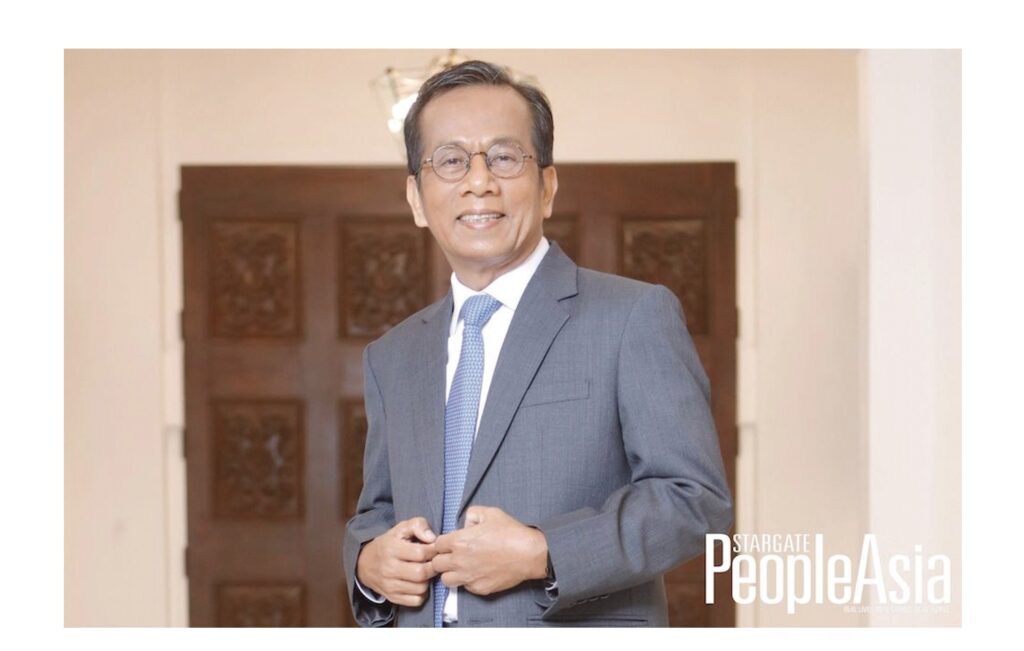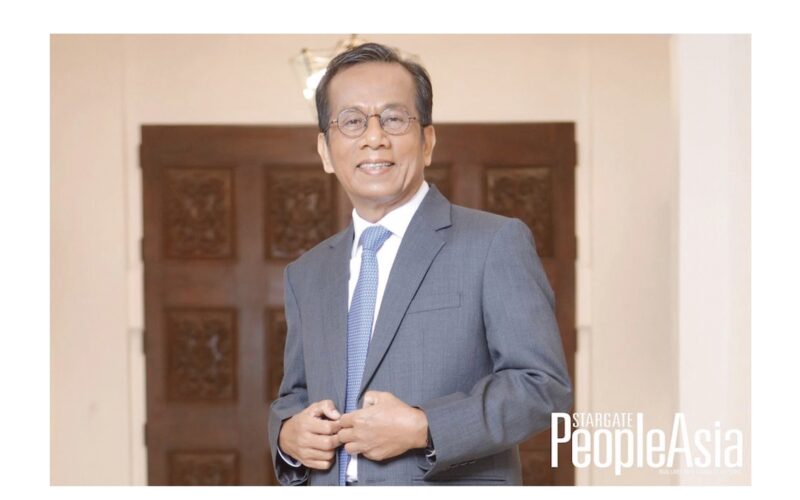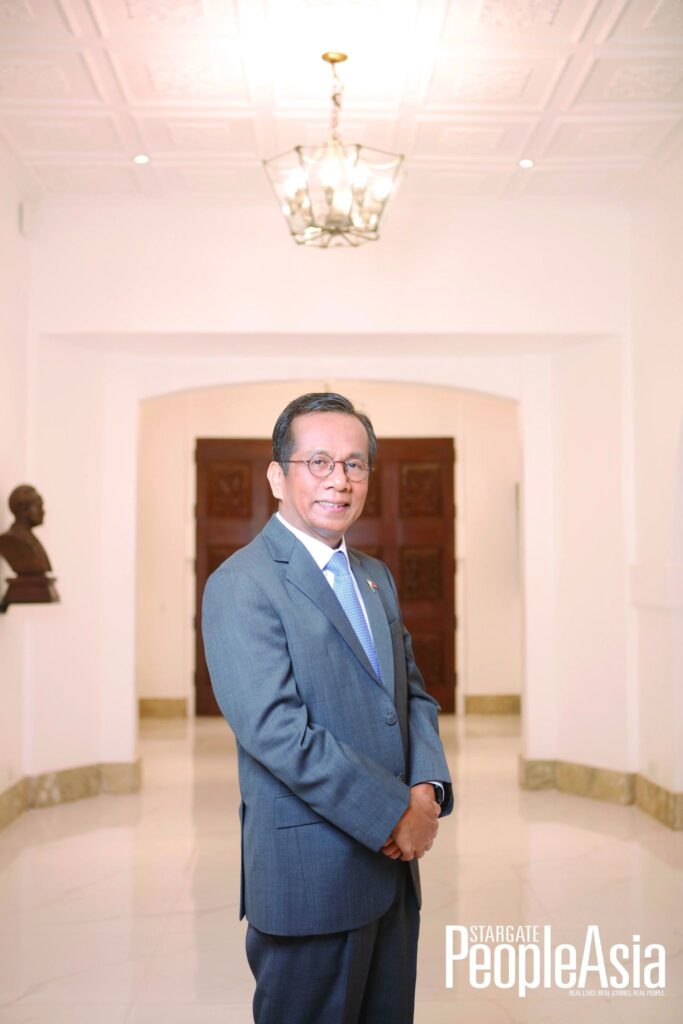By JOSE PAOLO S. DELA CRUZ / Photography by DIX PEREZ
As the country’s premier socioeconomic planning body, the National Economic and Development Authority (NEDA) is responsible for ensuring that national growth results in palpable change in the lives of the everyday Filipino. At its helm is Secretary Arsenio Balisacan, who not only assumes the post for the second time, but also employs a holistic and collaborative approach to get the job done.
Experience, as often is the case, is the best teacher. On that front alone, one could say that NEDA Secretary Arsenio Balisacan, who also held the same post during President Benigno Aquino III’s administration, has had quite the teacher.
“During my first stint at NEDA, I recognized the need to establish a vision of sustainable, inclusive growth across administrations and to change the narrative, so that the Philippines would no longer be the ‘sick man of Asia’ by 2050,” starts off Balisacan. Through a comprehensive and empirical exercise that began in 2015, NEDA, under his watch consulted Filipinos from various walks of life to determine their desired future.
And so, AmBisyon Natin 2040 was born. Citing continuity that has crossed party lines, Balisacan reports that both former President Rodrigo Duterte and President Ferdinand Marcos Jr., have adopted this long-term vision in guiding their respective administrations’ medium-term development plans — thereby providing the country a clear vision forward, regardless of who occupies Malacañang.
“One important lesson is to pursue a whole-of-government and whole-of-society approach to policy and program implementation. Well-meaning interventions that are implemented without broad-based consensus and support or buy-in from affected stakeholders are unlikely to prosper,” reminds this two-time NEDA chief. In short, agencies that work in silos are unlikely to achieve desired outcomes without employing a collaborative mindset.
He also shares that effective governance requires the forward-looking and anticipatory crafting of plans, programs and policies. “We have seen how our failure to do this in the past led to policy response challenges that resulted in a record economic contraction in 2020, setting us back by about three to four years,” says Balisacan.
Last but not the least, this gentleman from Solsona, Ilocos Norte, recognizes the indispensable role of the private sector as the country’s main engine of growth. “We must find ways to enable — not hinder and constrain — the private sector as a driver of our economy. It can be a vibrant source of financial capital, managerial expertise, and innovation if we let it be so,” he says. He emphasizes that harnessing public-private partnerships (PPPs) is one of the cross-cutting strategies that the government is pursuing under the Philippine Development Plan (PDP) 2023-2028, the country’s development roadmap for the medium term, which NEDA led in crafting under the second Marcos administration.
Attaining and sustaining inclusive growth
The road to inclusive growth is paved with hard work, consistency and an understanding of the dynamics and mindset of both the government and the people. With these said, Balisacan has his work cut out for him.
In the short term, NEDA and other agencies are urgently addressing inflation and the socioeconomic scars inflicted by the COVID-19 pandemic. Priority actions include protecting the poor from elevated prices, strengthening social welfare policies and mitigating losses and threats to public health.
Its medium-term agenda, on the other hand, covers priority actions to raise investment significantly and address the critical and well-known constraints to high-quality job creation and rapid poverty reduction. “The goal is to effect social and economic transformation and sustain rapid economic growth, enabling more equitable distribution of opportunities and faster reduction of absolute poverty,” he says.
This, according to him, will require sustaining economic growth of 6.5 to 8 percent and reducing poverty to single-digit level by the end of the Marcos administration.
Speaking from experience, Balisacan notes that the Marcos and Aquino administrations essentially have the same development priorities — broad-based and inclusive economic growth that supports socioeconomic development. Circumstances and context may change over time, but the long-identified constraints to such growth remain unchanged: raising productivity and investment, ensuring robust macroeconomic fundamentals, creating more and higher-quality jobs and protecting the poor and vulnerable segments of society, among others.
“Building on such lessons learned and on the reforms of past administrations, the Marcos administration is focusing its time and resources on addressing the constraints in agriculture and food security, as well as sustaining the country’s investment effort in infrastructure and human capital to secure future growth,” he says.

More than a good plan
Of course, as any key member of the executive department would know, a good plan can only take anyone and anything so far. And implementing PDP 2023-2028 to achieve the medium-term socioeconomic targets of the Marcos administration is no walk in the park.
It is one thing to formulate a plan, and another thing entirely to see it carried out — mostly because of various challenges that materialize along the way. Of course, the point of planning is to be prepared for unforeseen circumstances and ensure that we remain resilient to shocks,” he says.
Sustaining the momentum to achieve the targets also requires synergy of efforts across government agencies and diverse sectors of society. NEDA, in its coordinative role, ensures that sectoral and agency concerns are thoroughly discussed and resolved through the government’s various inter-agency committees and bodies.
One such sector that NEDA is giving high priority is agriculture, especially in the face of rising prices of commodities. To reduce the price of agricultural commodities, especially rice, NEDA is actively seeking to raise farm productivity and address inefficiencies in the supply chain by working on a host of interventions that should have been done in decades past. These include aggressively promoting R&D and innovation, enabling market-friendly policies and regulations, securing property rights, and investing in irrigation, logistics, and connectivity, particularly transportation and communication infrastructure.
Undeterred by the administration’s critics, especially with regard to the President’s promise of lowering the price of rice to P20 per kilo, Balisacan says: “As many have recognized, this is clearly no small feat and will not happen overnight. However, while there is merit to pursuing the fulfillment of this promise, our effort is focused on steadily improving the productivity of our farmers to make our rice sector (and agriculture, more broadly) competitive for a food-secure future.”
As the man leading the national agency in charge of coordinating efforts to sustain growth, reduce poverty, and promote overall socioeconomic development, Balisacan knows of what he speaks. Whether it’s his family having to face eviction as informal settlers in his younger years, or having had to survive on scholarships in order to secure his education, this self-made man knows of the common folks’ dreams and aspirations — and even their frustrations — from experience.
Despite not having finished their primary education, Balisacan’s parents taught him and his five siblings that education was the only way out of poverty. Taking this to heart, he eventually finished his bachelor’s degree in Agriculture from the Mariano Marcos State University in 1979, graduating magna cum laude; before completing his Masters in Agricultural Economics at University of the Philippines Los Baños in 1982; and his PhD in Economics from the University of Hawaii at Manoa in 1985 through a series of scholarships and aid.
“I studied and worked hard to find my place in life. Milled from the ‘university of hard knocks,’ I knew what I would want in life early on. Wherever I find myself, I give my best and love what I do. Luckily, I got noticed and support from people who believed in me. I did not ask for the high-level positions I held in government, but I have been fortunate and am thankful for those who have trusted and allowed me to serve our people and country,” he concludes.
Shot on location at Teus Mansion, Malacañang / Art direction by Dexter Francis De Vera / Styling by George Palmiano of MGP / Grooming by Eddie Mar Cabiltes
Special thanks to First Lady Liza Araneta-Marcos and Deputy Social Secretary Dina Arroyo-Tantoco






